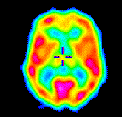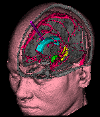 Physiological Effects of Caffeine
Physiological Effects of Caffeine 
 Physiological Effects of Caffeine
Physiological Effects of Caffeine 
Physiological Effects of Caffeine: (Note that the doses of caffeine required to produce such effects, and the severity of those effects, varies between individuals.)
CARDIOVASCULAR
(-) Caffeine is a vasoconstrictor and stimulant.
(-) Caffeine often increases blood pressure by contracting the heart and blood vessels in non-habitual users. Effects usually subside after 3 – 4 h.
(-) Caffeine changes the electro-physiological activity of the heart, increasing conductivity, even in limited doses.
(-) Heavy caffeine consumption raises (by about 2 mmol/L)the plasma levels of homocystine, a risk factor for heart disease.
(-) Caffeine raises plasma epinephrine and norepinephrine levels in non-habitual users.
(-) Coffee intake may raise serum cholesterol levels. Intakes of 5+ cups of unfiltered have been shown to raise cholesterol levels by 0.5 – 1.0 mmol/L (20 – 40 mg/dL).
GASTROINTESTINAL
(-) Caffeine stimulates gastric secretion. Some individuals are sensitive to caffeine and suffer ill effects such as acid indigestion, heartburn, abdominal pain, gas or constipation to varying degrees.
(-) Coffee can cause emesis (vomiting)
(-) Caffeine inhibits vassopressin, it acts as a powerful diuretic (it increases urination.)
(-) Liver metabolism is effected by methylxanthines such as caffeine. It increases the levels of cyclic AMP and decreases the level of branched chain and aromatic amino acids in plasma.
MUSCULAR/SKELETAL
(-) Caffeine can mobilize calcium from cells and may lead to bone mass loss.
(-) Caffeine consumption is a risk factor for osteoporosis.
(-) Caffeine affects skeletal muscle contractility.
(-) Tremor is a common side effect of caffeine consumption.
REPRODUCTIVE
(-) Caffeine, particularly in doses of 300mg (3 cups of coffee) or more per day, can result in both male and female infertility.
(-) In animal tests, high caffeine consumption was associated in poor pregnancy outcome: spontaneous abortion, congenital malformations, fetal growth retardation, and residual effects in the newborn.
RESPIRATORY
(-) Caffeine stimulates respiration. This effect is mediated
by the neurotransmitters dopamine and seratonin.
Home
- Chemistry - Physiological
Effect
Psychological
Effect - Conclusion
Other
links - Contact